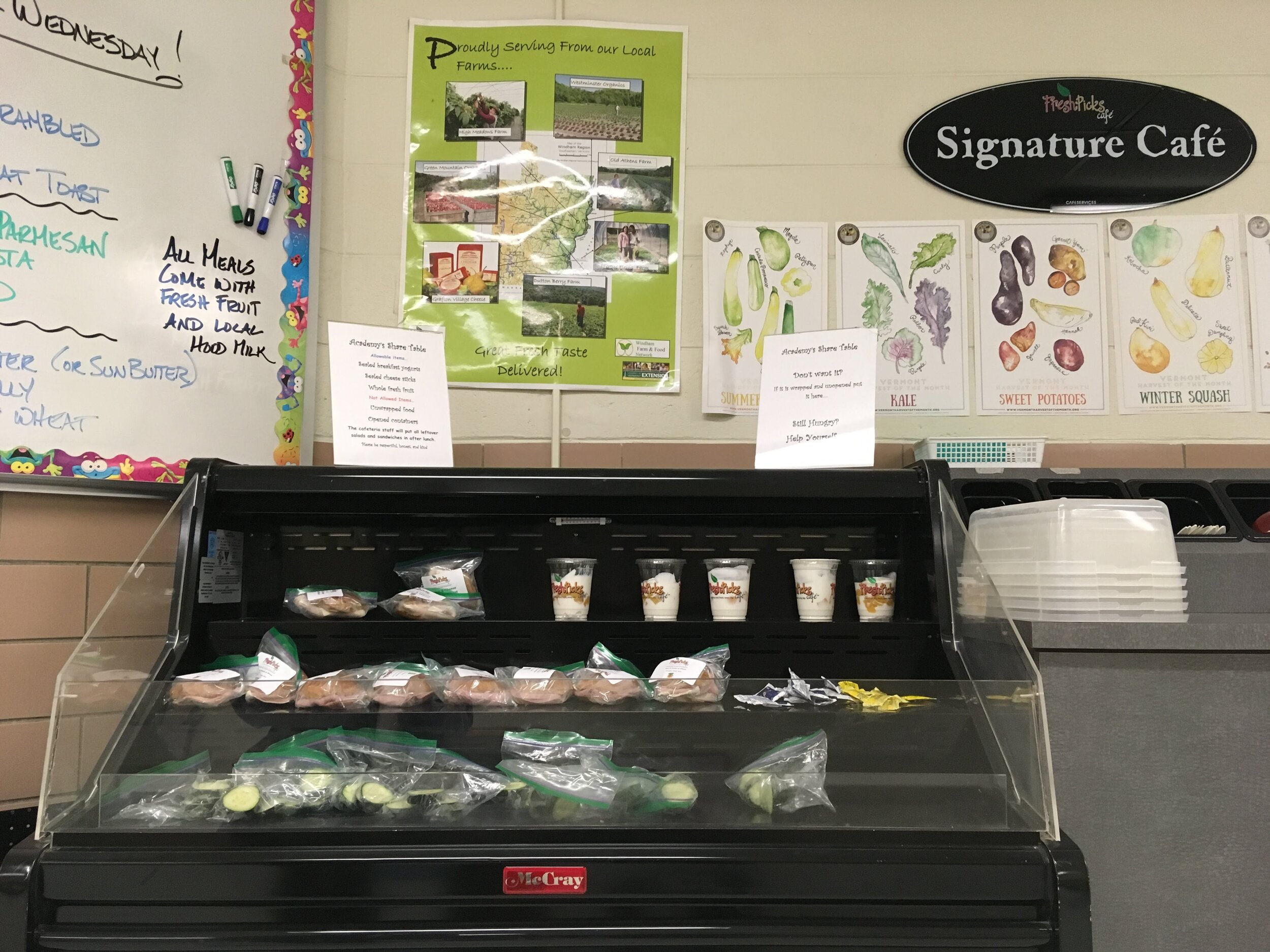What’s one of the best ways to ensure Farm to School becomes an integral part of school culture? Welcome students as partners and leaders in the movement. It’s always a goal when introducing Farm to School and is a big focus of our upcoming Farm to School Conference. The keynote address and one of the workshops are all about engaging students.
Because of all this, I quickly accepted the offer from the Leland & Gray Environmental Action Force (LEAF) to join them for lunch the Friday before winter break. I was excited to hear what they’ve been working on and to share some ideas for tackling food waste in their school.
Before meeting with advisors, Mary and Chris, and the students, I swung by the cafeteria to grab lunch and chat with Food Service Director Chris Parker. I was recently a judge for the local Junior Iron Chef competition and we caught up on the regional teams that will be headed to the statewide competition next month. The recently renovated cafeteria was bustling with students getting made-to-order sandwiches, making their own salads, and the main entree for the day.
With my plate loaded up with a BBQ Chicken Sandwich, corn salad, and more veggies from the salad bar, I headed back up to Mary’s classroom for the LEAF meeting. By the time I got there, they were already deep in discussion but were happy to backtrack for me.
So, what’s LEAF been up to at Leland & Gray? They’ve been deeply involved in climate change activism in their community and statewide. Students traveled to Brattleboro and Burlington for panel discussions and protests. Regularly, you’ll find students outside with signs during lunch, raising awareness of climate change issues locally and keeping it on people’s minds. The group also manages the school’s compost system and has been supporting sustainable school practices such as buying reusable utensils for the cafeteria.
The group was also receptive to the idea of digger deeper into food waste reduction. A lot of the strategies proposed in Food Connects’ recent grant focused on working with Food Service Directors, but engaging with student groups is arguably the best way to shift school culture. LEAF is going to start with a food waste audit to measure how much food waste is leaving the cafeteria and then evaluate what the best next step is.
We also talked about the upcoming Farm to School Conference and the group was excited to join. Mary, Chris, and a group of LEAF members decided to sign up. Having an engaged student presence at the conference and in the workshops will benefit everyone in the room! Students are often a stakeholder group that is absent in Farm to School conversations but can add depth to school partnerships when they’re involved.
We had covered a lot of ground in a small amount of time. Abruptly, the bell rang and ended our conversation. I looked down at my plate, I had taken one bite of my sandwich! Luckily, I didn’t have a class to get to and Mary let me finish lunch in her classroom. The impossibility of a 25-minute school lunch becomes clear when you have experienced it for yourself.
Leave class, get to the cafeteria, chat with a friend, wait in line, get your food, find a table, socialize and eat your lunch (without cramming!) all in 25-minutes—good luck!
But, that’s a topic for another time.



